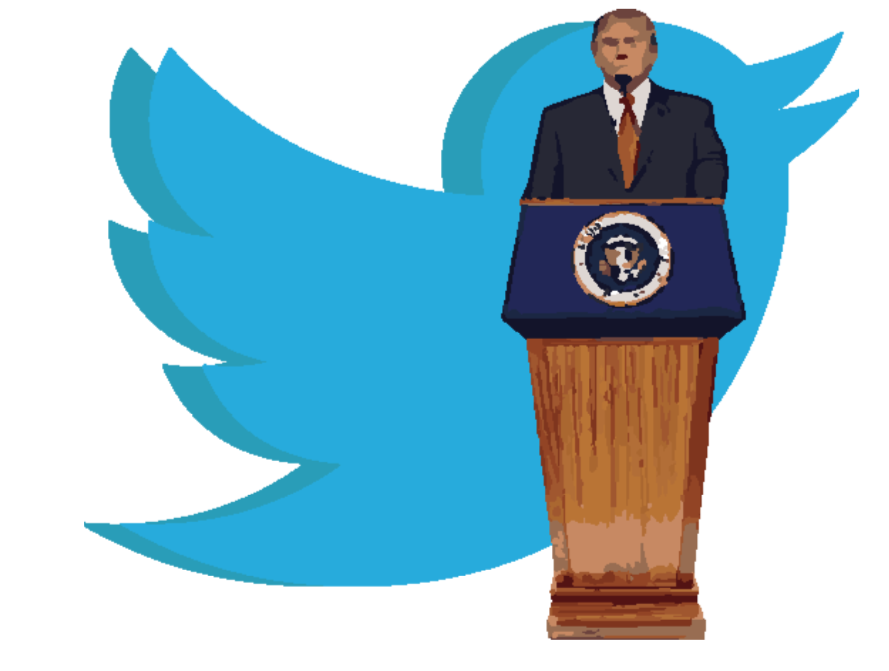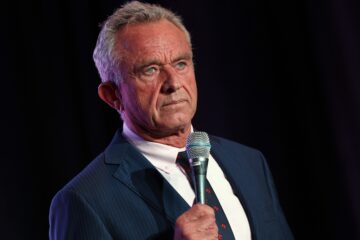Chances are, if you go to Winthrop, you are active on at least one form of social media. Whether it’s Twitter, Facebook or Snapchat, every day we open up our phones and are faced with large amounts of information.
According to a 2017 survey by global tech company Asurion, on average, people struggle to go longer than 10 minutes without looking at their phones. The survey also found that separation anxiety from one’s phone is common, with 31 percent of respondents saying they feel extreme stress when separated from their phone.
While this reliance on our phones can be detrimental to our connections with those in our personal lives, it has opened up a new space for discussion between people from many different backgrounds. It has also created platforms for the average person to connect with celebrities, brands and politicians.
Barack Obama’s 2008 campaign pioneered the use of social media in connecting with voters as Facebook rose to popularity in 2007, political science professor John Holder said.
“I remember the 1990’s when it was a big deal that a campaign had a website and an email address,” Holder said.
In a 2008 article, the New York Times said that the use of social media in Obama’s first presidential campaign not only rallied young voters, but that the then-president-elect now had a database of millions of voters he could reach almost instantly.
Over the last 12 years, social media has become an even more prevalent part of our daily lives and in response, the use of the new medium by politicians has grown. This growth has been most noticeable on Twitter, where multiple posts a day are encouraged and expected.
It has also become a primary news source for many people. Holder said that prior to answering questions, he asked two classes where they get their information and the most common responses were through social media platforms.
The attitude most Twitter users have is to use the medium as a tool to respond to events happening and news that they hear. Often, news is spread through the reaction to articles, creating less of a knowledge of events among the general public, but instead a general idea of people’s feelings toward them. This sharing of feelings has become common to how politicians use the platform.
A prime example of this is President Trump’s account, where he responds to national events as well as criticisms. This connection to Trump and access to his instant reactions to issues has created a new environment for citizens. In the past, messages from presidents have been heavily monitored and put through a PR team, but the @realDonaldTrump account doesn’t seem to have this kind of filter.
This has been a good and bad thing for Trump. Many of his supporters like the frankness represented through the tweets, but for his opposers, it seems to give them more fuel to the fire against him.
Either way, Trump’s use of Twitter has certainly encouraged more use of the platform among other politicians to express not only their policies but also their emotional reactions to issues.
On Nov. 7, Senator Elizabeth Warren, @ewarren, tweeted in response to Mike Bloomberg joining the Democratic presidential race. “Welcome to the race, @MikeBloomberg!” Warren said, and then linked to her billionaire tax calculator, which shows how much the ultra-rich will be taxed under her proposed policies.
On Nov. 8, Senator Cory Booker, @CoryBooker, tweeted about the anniversary of Trump winning the election against Hillary Clinton. “[i]f we turn out to vote, we will make Trump a one term president,” Booker said. This tweet garnered a much higher amount of responses than he has on average due to its motivational sentiment. He used the database he has gathered throughout his time as a senator and now as a democratic candidate to appeal to people’s emotions and give them something to share.
Candidates of today have learned that using social media, especially Twitter, gives them a new kind of upper hand. Politicians are now using these platforms as a way to appeal to voters’ emotions. They know that we are constantly on our phones and engaging with social media, often more than with traditional media.
By appealing to our emotions and connecting with us on a different and unique level, these candidates are making politics more about emotions and our personal relationship with the candidate than ever before. This isn’t a bad thing — political opinions are dictated by our ethical views — but it can also create a situation where we focus on a candidate’s personality more than their policies.
Be watchful when it comes to candidates appealing solely to emotions. Take a deeper look into their policies and if they have solid plans to back up the buzz words they use. Don’t be taken away solely by a candidate’s candor on social media.
Graphic: Lizzie Talbert/ The Johnsonian




